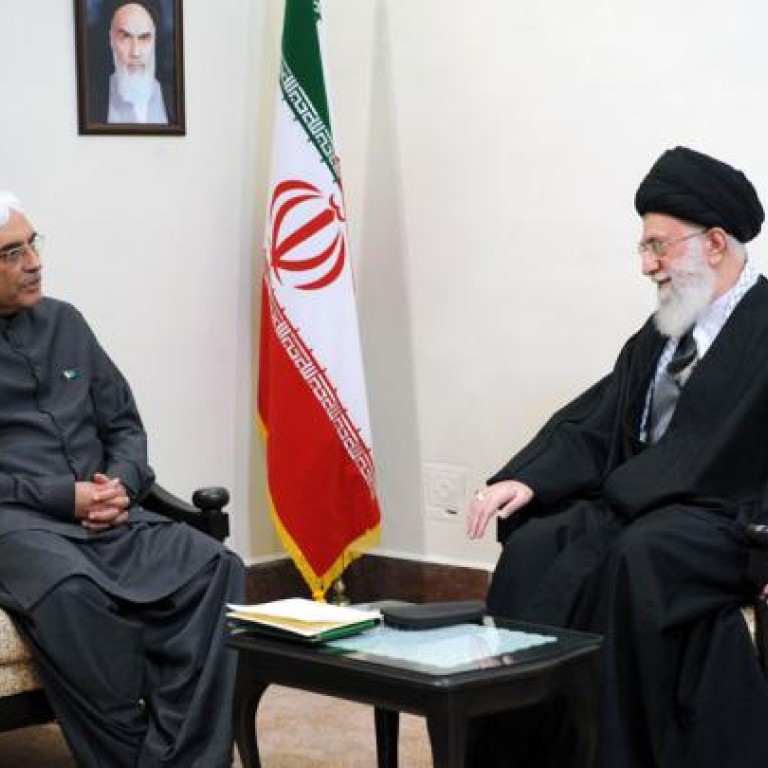
Pakistan's need for gas drives partnership with Iran on pipeline
Syed Fazl-e-Haider says while US opposition can't block pipeline, security remains an issue
Islamabad and Tehran are all set to begin work on a much delayed US$7.5 billion Iran-Pakistan gas pipeline, a project that faces stiff opposition from the United States. The project can bring an economic bonanza for Iran, which faces sanctions from the United Nations, the US and the European Union over its nuclear programme.
The pipeline was originally a trilateral project planned to extend from Pakistan to India in the 1990s. In 2009, India withdrew under US pressure. The US discouraged India and Pakistan from any deal with Iran because of Tehran's nuclear ambitions.
Beijing has also shown interest in joining the pipeline, which could provide a chance for a secure overland gas supply if it were extended from Pakistan into Xinjiang.
Iran has already built more than 900 kilometres of the pipeline on its side of the border, while the work in Pakistan is all set to begin this month at a cost of US$1.5 billion. Tehran has agreed to finance one third of the cost.
A land-based pipeline would be cheaper than any other energy option for Pakistan, which could also earn between US$200 million and US$500 million annually in transit fees.
Pakistan continues to face extreme power shortages, causing prolonged blackouts in rural and urban areas and a decline in industrial growth. The energy crisis has resulted in the closure of many industrial units across the nation. Pakistan will import 21 million cubic metres of gas per day through the new pipeline, which is expected to be operational by the end of next year.
The US has repeatedly warned Islamabad that it would face sanctions if it went ahead with the pipeline project. Pakistan, for its part, has remained defiant, saying it cannot abandon the "energy lifeline" for its fragile economy.
The construction of the pipeline has been delayed on the Pakistan side not only because of US opposition, but also a lack of funds and the worsening law and order situation in southwestern Baluchistan province, through which much of the pipeline will pass. Even with Iran's loan and technical assistance, security remains the biggest issue in turning the dream into reality.
In insurgency-hit Baluchistan, domestic gas pipelines are frequently attacked by Baluch militants. Baluchistan also suffers from serious sectarian violence, with the Hazara community belonging to a minority Shiite sect under attack from Islamist extremists.
Some 200 Hazara people have been killed in attacks in Quetta, the capital of Baluchistan, in the first two months of the year. The worsening situation has forced the federal government to dismiss the provincial government and impose governor's rule in the province.

